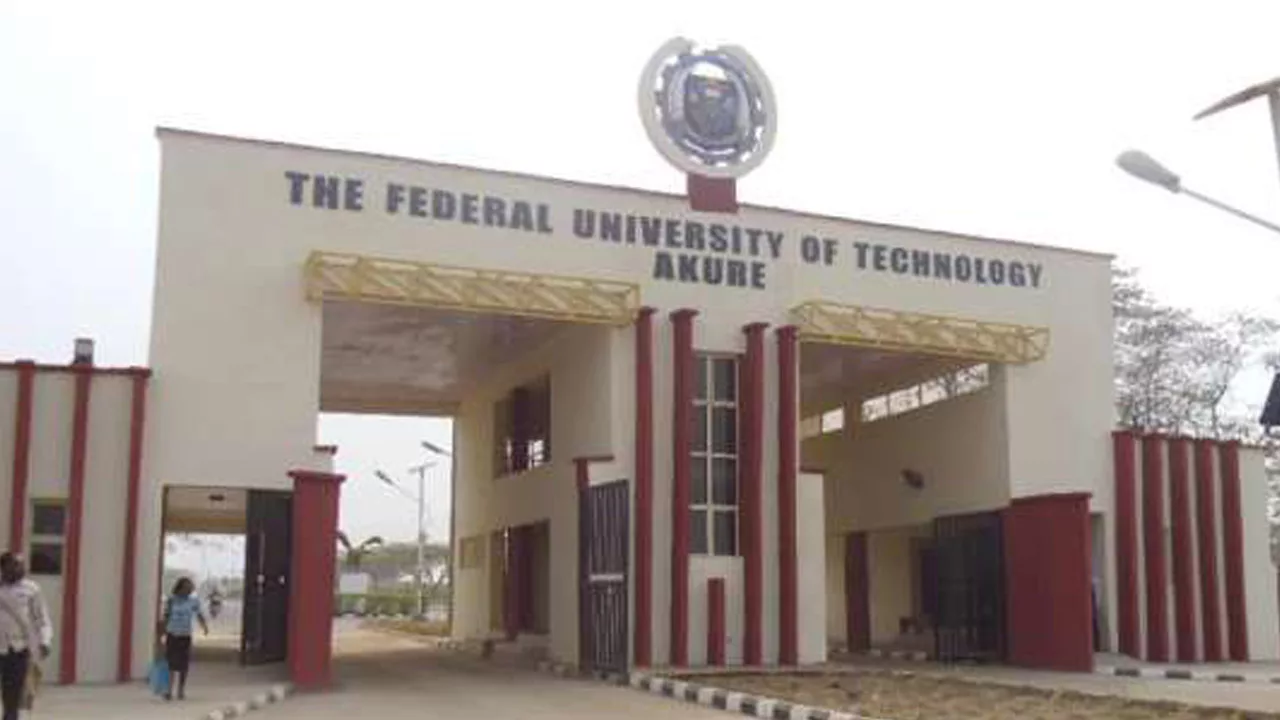In pursuit of admission into higher education, Nigerian youths grapple with the choice of either entering for university degrees or diploma courses in polytechnics. Due to the dichotomy between the two certificates, students prefer to apply for the degree programmes not because of their abilities or competence but because the agencies of the Ministry of Education have surreptitiously or deliberately placed university degrees above polytechnic and monotechnic certificates despite their different purposes.
The educational system in Nigeria has been inundated with different issues that threaten its smooth flow and objectives. Statistics of out-of-school children has hit 18.3 million and this positions Nigeria as a nation with the highest number of out-of-school children globally.
The breakdown shows that only 63 percent of primary school-age children regularly attend school. Also, approximately 84 percent of children transition to junior secondary education after completing primary school. This is an ugly trend that the federal government via the Ministry of Education and its agencies including the Universal Basic Education Commission (UBEC), among others, should link into.
The purpose of Nigerian polytechnics and monotechnics is to provide technical and practical training to support the country’s economic development.
According to the National Board of Technical Education (NBTE), this higher school of learning is to train technicians, technologists and managers; provide technical and practical training for the industrial, agricultural, commercial and economic sectors; offer post-secondary technical education programmes; provide courses in technology, applied sciences, commerce and management. The monotechnics and polytechnics also contribute to the development of Nigeria’s industries and economy.
Jobs like vulcanising, tiling, mechanics, carpentry, welding, tailoring, bricklaying, rewiring and electrical services are having ample shortages of apprenticeship as the youths of nowadays do not want to learn the skills any longer and those who want to learn are doing so just to fulfill a desire of parents or sponsors as they do not see a career in a society laced with get-rich-quick syndrome.
Dissecting The Dichotomy Between University And Polytechnic Certificates
Representing the National Board for Technical Education (NBTE), the Southwest zonal director whose office is based in Yaba College of Technology, Elder Ayo Aroge, spoke exclusively with our correspondent, stating that the dichotomy had been a lingering issue in the annals of pursuit of higher education in the country.
He disclosed that there is even a bill to abrogate the dichotomy between university degrees and polytechnic qualifications, adding that the training in both higher schools of learning are different but complementary.
“The training in the polytechnics and monotechnics under the NBTE are different from that in the university under the Nigeria University Commission (NUC). What we are seeing is a kind of misplaced priority on the part of handlers of government. An HND graduate of Electrical Engineering from the Polytechnic is not placed in the same cadre in the civil service with a graduate of same course in the university and so is their enumeration, and this has caused a dichotomy which is not supposed to be. We should know that for both Electrical Engineers and Technologists, the curriculum of the courses are not the same.
“Some Polytechnics and Colleges of Technology like Yabatech are being upgraded to universities by the state and Federal Government which is not unconnected with the funding of the different tertiary institutions as there is definitely a reduction in enrollment of students in the Polytechnics and a corresponding increase in the varsities.
“Government feels that the funding that is given to Polytechnics with lower number of students seems not justifiable when there are more students in the universities and they need the funding. An example is that of Federal Polytechnic Ado-Ekiti which is experiencing a reduction in students’ enrollment.
“Look at Lagos State for example which has no polytechnic or college of education again as the governor has upgraded them to universities – Lagos State Polytechnic of Technology (LASPOTECH) upgraded to Lagos State University of Technology (LASUSTECH) and Adeniran Ogunsanya College of Education (AOCOED) to Lagos State University of Education (LASUED),” Aroge stated.

The executive of NBTE who showed the relevance of polytechnics noted that “for every engineer needed in a project or company, three technologists (from the College of Technology) are needed and for every technologist needed, three artisans or craftsmen in the related field are needed also from the college of technology.
So, from this explanation, 12 professionals are needed from the school of techs under the NBTE compared to one engineer from the university and this forms the training that is needed.”
Meanwhile, stakeholders in organised labour, the Nigeria Labour Congress (NLC), have expressed their dissatisfaction over shortages of qualified manpower in most sectors of the economy.
In separate chats with our correspondent, Comrade Ibrahim Alhaji, stated there is a looming danger in the nearest future. According to him, Nigeria is sitting on a keg of gunpowder which could explode any moment as the Federal Government is indirectly creating loopholes by converting technical institutions, polytechnics into universities thereby discouraging pursuit of technological qualities individuals at a time that Artificial Intelligence is becoming a major competitor.
“We used to have technical colleges and then polytechnics across the country, but government has by its policy inconsistencies, watered down those learning institutions without providing better alternatives.
“Preferring university graduates to polytechnic graduates, and converting most polytechnics into universities without having sound and well-established technical colleges will lead to future dependence on other people to do what ought to be handled by Nigerians,” he said.
Also, Comrade Hassan Kanuri said that, “We are being faced by a large army of unemployable Nigerians who are not ready to get the needed skills for the tasks ahead. With Artificial intelligence (AI) now in many establishments, most people including the youths who have refused to adopt the latest skills will become sources of setbacks for national development.
“Construction companies, particularly the Small and Medium Enterprises (SMEs), have been struggling to recruit skilled artisans such as bricklayers, carpenters, plumbers and electricians as demand for these skills outstrips supply. As a result of this skills gap, the sector is experiencing a dearth of skilled labour workers to contribute to home affordability and growth of the sector.
“The lack of labour and skills acquisition combined with an increase in the cost of building materials, has dealt a sharp blow to small and medium construction companies alike.
“This development also contrasts sharply with the government’s plan to build hundreds of thousands of houses annually.
“With the construction industry experiencing a resurgence in growth, and more than a million homes estimated to be built by 2030, it’s more important than ever that the sector has the skilled workers it needs to explore some possible solutions to bridging this skill gap.”
Addressing the Skilled Labour Shortage in the construction sector, the national president of Nigerian Association of Chambers of Commerce, Industry, Mines and Agriculture (NACCIMA), Dele Kelvin Oye, raised the alarm on the shortage of semi-skilled labourers at construction sites, in the business sector and workplaces.
According to him, shortage of semi-skilled labour is one of the most pressing issues today and is already having serious implication for both business and the economy.
“It is becoming difficult to find semi-skilled workforce like electricians, plumbers, welders, fitters, machinist, bricklayers, plasters, amongst others. Manufacturing and construction are experiencing some shortage and we need to collaborate to resolve this growing challenge.
“We at NACCIMA applaud the Federal Government for realising the need to partner with the OPS to find a lasting solution as contained in the Executive Order 5: ‘The MDAs shall work with the organised private sector (OPS) in consultation with other relevant government agencies both at federal and state levels to achieve sustainable personnel development, training of Nigerian professionals, contractors and technocrats.’
“We are therefore calling on government to walk-the-talk by actively collaborating with the association to work with member companies whose factories can also be used as training centers to ensure that the identified gaps are closed. We implore government to put appropriate machineries in place to actualise the development of the semi-skilled workforce.”
NACCIMA President further invited companies who have factories and are ready to join in the project to contact the association.
“Let me inform you that the private sector in partnership with SEQUA with the support of the GIZ implemented a programme, ‘Skills Development for Youth Employment (SKYE)’, funded by the German Federal Ministry for Economic Cooperation and Development (BMZ), already working to ensure the development of a standard and acceptable occupational profiles and curriculum for technical and vocational education in Nigeria. This is a step the OPS is taking to upscale semi-skill training and make them available.”
Solutions
To bridge the skills gap in Nigeria, the most populous black country, the National Board of Technical Education (NBTE) and other skills centres in different states need to collaborate to encourage the youths to enroll.
An educationist, Michael Omisore noted that vocational skills subjects in the secondary schools need to be entrenched and made richer for students to study and enjoy.
Aroge also stated that there are vocational skills tailored towards the women called, “Girls’ Education and Skills Partnership (GESP)” for free and young girls are encouraged to enroll as there are close to 50 students in the pilot scheme at Yabatech.
Also, there are skills like National Skills Qualifications (NSQs), that the working class and the youths could undergo to be trained and given a certificate that is recognised by the federal government.
It is evident that Nigeria can experience her technological revolution soon if there is a deliberate policy that will target promotion of skills acquisition, training and retraining of tutors – teachers in the basic and tertiary education sectors, agencies within the Ministry of Education, Science and Technology, in tandem with the mantra – Technology for Self-Reliance, and attention given to long-term planning like the Chinese government did.





